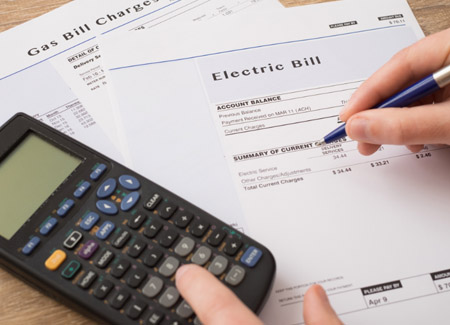Be proactive to help your customers avoid deep utility debt

For a utility company, a block of unpaid bills on the books can be a millstone. Unfortunately, with each missed payment, your chances of recovering the money starts slipping away. To help you get paid more quickly, take a look at some preventive measures and strategies to deal with these common situations.
- Old debts: In many states, the law sets an expiration date on old utility debts. Still, utilities can increase the chances of recovering these balances by being proactive as soon as an account slips into past-due status. As a rule, give plenty of notification, post your policies and procedures for late bills, and turn over the accounts to collections when unpaid balances reach the 60- to 90-day mark.
- Identity theft and mix-ups: The best defense is a good offense, which means it may be time to take a smart look at signup procedures. Is enough information being collected to verify your customer’s identity?
- Sticker shock: Bad weather, market prices and malfunctioning equipment are just some of the situations beyond a customer’s control that can lead to a big surprise on their monthly statement — and an inability to pay in full by the due date. If your state requires your utility to offer payment plans in these situations, keep this information posted on your website where customers can easily locate it. If they know and understand their options early, they can take steps to resolve it.
- Income: For those living below a certain income level, some states require shut-off protections and payment plan options. Make a summary of consumers’ rights and options easily available, along with a list of government and nonprofit organizations that can help them make ends meet. While statutes and regulations may prevent utilities from forgiving balances due to hardship, utilities can find other ways to help. Some offer in-kind marketing to nonprofits or allow customers to round up their bills to donate to charity.
- Skipping town: When the trail goes cold on an ex-renter with a high balance, who’s responsible? If the person taking over the space is a roommate or blood relative, you can, most likely, stake a legal claim on payment. Otherwise, you may be able to recover it from the property owner. In such cases, offer the option of a payment plan, especially if the outstanding bills are high. Reduce these hassles by taking proactive steps, such as switching to a premises-based utility system, where the property owner is billed instead of the tenant.
While customers should certainly pay for the utilities they used, barriers to payment do come up. Armed with good training, procedures, and communication methods, utilities can head off some of these sticky situations and get paid more quickly.
Need collection help?
Call us at 1-800-279-3511 to REQUEST PRICING!
About the Author: Brian Eggert
Brian Eggert is a business development specialist and writer for IC System, one of the largest receivables management companies in the United States. With 18 years in the collection industry, Brian's experience includes operations, client service, proposal writing, blogging, content creation, and web development.










